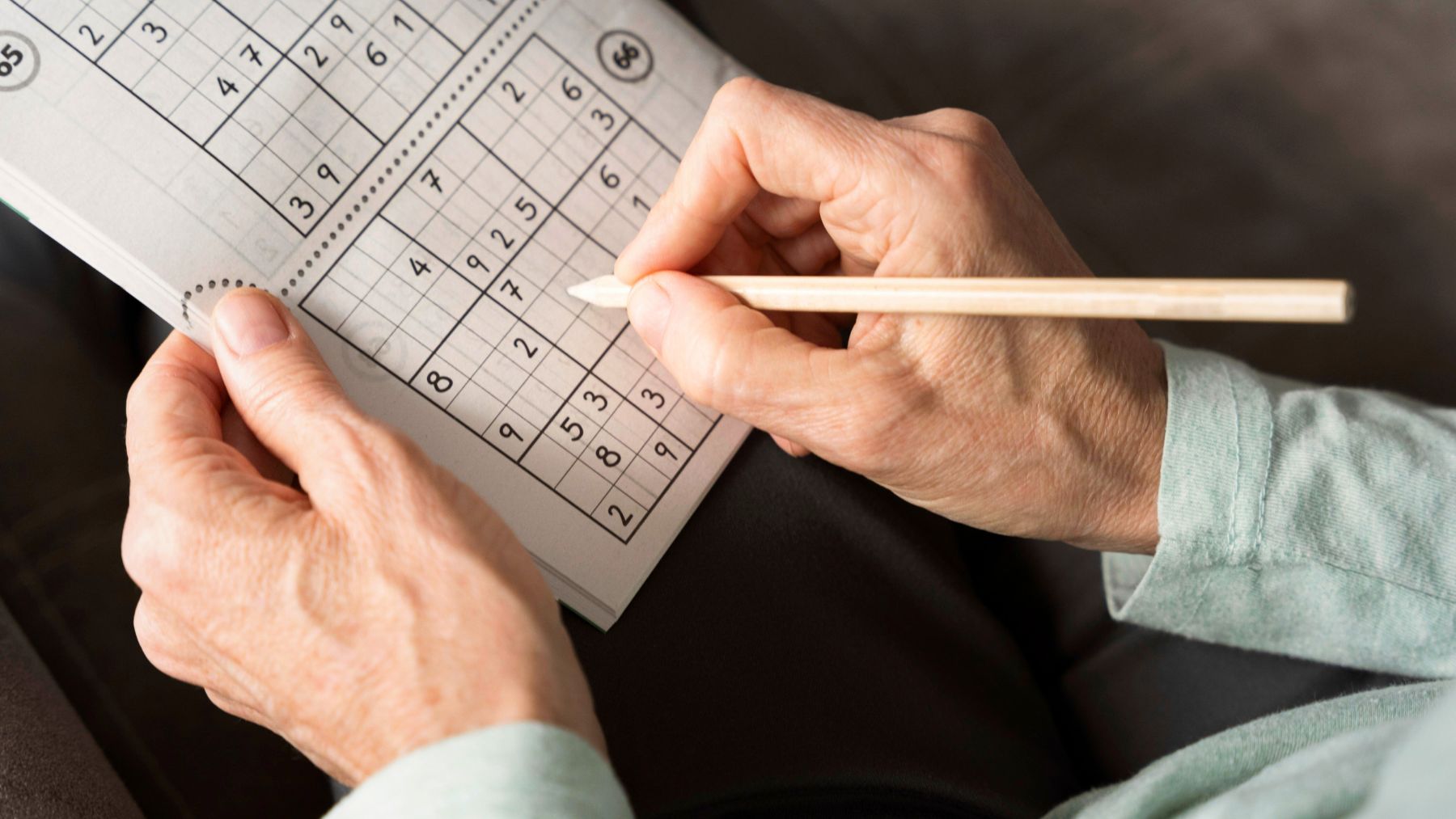Sudoku has long been recognized as a popular brain exercise for older adults. However, it’s by no means the only game to maintain mental sharpness. Research and cognitive studies indicate that integrating varied mental challenges—ranging from arithmetic problem-solving to puzzles and crosswords—brings cognitive benefits.
Kakuro is a distinctive puzzle that builds on Sudoku’s established strengths while introducing additional layers of mathematical calculation and pattern recognition for a more stimulating experience. Here, we’ll cover its benefits for memory and brain health, while also exploring other hobbies such as jigsaw puzzles, cryptograms, and other brain teasers.
Why Kakuro is a good hobby for seniors to prevent cognitive decline
Kakuro, often called “crossword sudoku”, employs a grid similar to its well-known cousin, yet substitutes traditional number placement with intricate math-based clues. Each puzzle demands that blank squares be filled so that the numbers add up to predetermined sums in both horizontal and vertical alignments.
This twist transforms it into a hybrid challenge by merging the logical rigor of Sudoku with the nuances of arithmetic and pattern recognition. For seniors, this approach stimulates multiple brain regions, a factor that research links to improved cognitive resilience.
The arithmetic element in Kakuro significantly bolsters working memory, a critical skill for temporarily holding and processing information. Engaging in sum calculations while evaluating multiple potential number combinations ensures that the brain continually shifts and manages data, which can help decelerate age-related memory decline.
Beginners are encouraged to start with smaller grids and more straightforward sums, slowly advancing to increasingly complex puzzles as their skills develop. Many enthusiasts discover that the blend of mathematical challenge and logical reasoning is more rewarding than simple number placement, promoting higher levels of motivation.
For seniors who are less inclined to use digital gadgets, printable puzzle formats provide a viable alternative, while apps such as Kakuro Puzzle Master offer adjustable difficulty settings, visual aids, and user-friendly designs.
More brain-boosting activities for seniors over 65
While Kakuro remains a standout option, combining it with other activities fosters a well-rounded cognitive routine. Here are four effective options:
- Learn basic conversational language: Apps such as Duolingo, along with community classes, enable you to practice Spanish, French, or Mandarin. Language learning not only enhances memory and develops multitasking capabilities but also refines decision-making skills as your brain navigates new grammatical structures and diverse phonetic patterns.
- Gardening: Plan a small herb garden or embark on a bonsai project. Monitoring growth cycles, diagnosing plant health, and designing creative layouts boost spatial reasoning and problem-solving abilities. The rich sensory experience—manifested in diverse textures, natural scents, and vibrant colors—stimulates neural pathways and reinforces cognitive function.
- Dance or tai chi: Choreographed movements in activities such as line dancing or tai chi enhance coordination while challenging the brain to memorize intricate sequences. The social dimension of group classes in dance or martial arts contributes to a better mood and overall mental well-being.
The idea is not to juggle an overwhelming array of hobbies, but to select two or three that are rewarding for you. Rotating these throughout the week helps prevent mental fatigue and keeps your brain engaged.

